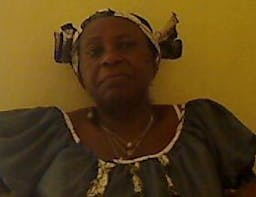Quid des concertations politiques congolaises
Feb 25, 2020
Story
Quid des concertations politiques congolaises
« Les concertations politiques » entre congolais prévues en début septembre 2013, vont en principe mettre au tour d’une même table la majorité au pouvoir, l’opposition politique ainsi que les acteurs de la société civile pour la cohésion sociale dit-on, en vue de faire face aux rébellions qui ont longtemps endeuillé le pays. Pour ce faire, l’accord cadre ad hoc prévoit un médiateur neutre pour garantir la crédibilité des conclusions issues desdites assises. Le président de la République, Mr Kabila, vient de passer outre en nommant de façon unilatérale Mr Evariste BOSHABE, président de l’Assemblée Nationale en tant que facilitateur.
Nous estimons pour notre part que cette façon d’agir est de nature à créer des frustration dans les chef des autres parties prenantes au dialogue, dans la mesure où l’on ne peut pas être juge et partie, de peur que ce la n’ entache la quintessence même des débats. Nous avons oui dire que cette majorité est allée plus lion en se taillant la part de lion.
L’UDPS de Etienne TCHISEKEDI et l’UNC chère à Vital KAMERHE, le deux locomotives de l’opposition politique se déclarent n’est pas être concernés. D’aucun s’inquiètent sur l’issue de ce forum, dans la mesure où pour les uns, l’agenda consiste à remettre en cause l’ordre établi en mettant en place un gouvernement d’union nationale, la majorité au pouvoir ayant montré ses limites dans la gestion des questions vitales de la nation. Pour le tenant du pouvoir, il n’en est pas question alléguant qu’il n’y a pas crise pas crise institutionnelle D’autres par ailleurs pensent qu’il faut absolument revenir sur la crédibilité des résultats des urnes de 2011, mis en cause par l’opposition et la majeure partie de la population.
Face à cet imbroglio : 1. quel est la part du congolais moyen qui tient à voir son revenu majoré pour affronter les sollicitations liées à sa survie quotidienne? 2. Dans quelle mesure ce soldat est motivé, soutenu tout au long de sa progression au front ? 3. Quelle est la stratégie nationale pour doter de la RDC d’une armée réellement Républicaine qui soit à même de sécuriser nos frontières ? 4. Comment cet enseignant qui reprend la craie d’ici peu est encadré par le pouvoir pour pouvoir donner le meilleurs de lui-même ? 5. Comment ce paysan est renforcé pour améliorer sa productivité, diversifier sa production et accéder aux marchés porteurs ? 6. Comment ce centre de santé de Bobila perdu dans la forêt à Shabunda offre le minimum des conditions à cette femme qui vient accoucher ?
English translation by community member tezmez40
Conga Political Discussion
The political dialogue between the Congolese, planned for the beginning of September 2013, is going to effectively place the majority of powerful people around the same table - the political opposition as well as society’s major players – for social cohesion, with the view to fighting the rebellions that have plagued the country for years. To do this, the ad hoc agreement utilises a neutral mediator to guarantee the credibility of the discussions. The President of the Republic, Mr Kabila, recently named, without much opposition, Mr Evariste Boshabe (President of the National Assembly) as the facilitator.
We suspect that this was done to create frustration amongst the heads of the other parties taking part in the discussions, for they would think that one cannot be both judge and jury for fear that they soil the spirit of the debates. We have to say that this majority went further by taking the lion’s share. Etienne Tchisekedi of the UDPS and Vital Kamerhe of the UNC, the two leaders of the opposition have declared that they are not concerned. None of them are worried about this discussion, to the extent that for some, the agenda consists of returning the established order by putting in place a government focused on national unity. The majority in power having showed their limits in the management of important questions about the nation. For the holder of power, there is no way, allegedly, that there is no national crisis. Others think however, that it is absolutely necessary to return to the credibility of the polling results of 2011, implemented by the opposition and the major part of the population.
Faced with this embroilment:
1. What part of the Congolese wants to see its increased revenue being used to confront the stresses of everyday life?
2. What motivates our soldiers and to what degree are they supported during their advancement towards the front?
3. What is the national strategy in so far as supplying the DRC with a truly republican army to secure our borders?
4. How are teachers able to give their best effort if they are surrounded by powerful people and organisations?
5. What type of support is in place for farmers to increase productivity, diversify their production and access growing markets?
6. How does the Health Centre of Bobila, in the middle of the Shabunda forest, offer the minimum health care to women who have just given birth?




